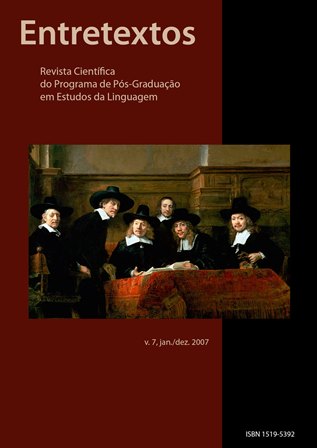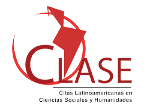The use of learned words in legal discourse: an imposition of gender
DOI:
https://doi.org/10.5433/1519-5392.2007v7n1p57Keywords:
Lexicon, Genre, Juridical discourseAbstract
It is proposed to examine the lexicon present in the judicial proceedings of juridical institutions which are represented by public prosecutors, lawyers and judges. Both judges and pre-service judges show their anxieties in relation to the erudite lexicon in judicial proceedings. It is understood that the use of a lexicon in which Latin expressions and archaic words occur, might be understood in the light of such an approach. We were based on the presupposition that the lexical choice someone makes when working out a statement is related to the coercion of the genre. Thus, it is believed that the lexical units that occur in petitions are submitted to this type of coercion. Bakhtin's and Mangueneau's sayings concerning genre are adopted, for both take the language aspects into consideration, in its relation to social and institutional activities. Considering that the lexicon that calls our attention in petitions is quite vast, it will be delimited, having as the object of this work only the statements in which the lexical units diapasão and ad argumentandum tantum occurs. These words were chosen for being quite frequent in the petitions examined.Downloads
References
BAKHTIN, Mikhail. Estética da criação verbal. Tradução de Maria Ermantina Galvão G. Ferreira. São Paulo: Martins Fontes, 1997
BAZERMAN, Charles. Gêneros textuais, tipificação e interação.Tradução de Judith Chambliss Hoffnagel. São Paulo: Cortez, 2005.
CÂMARA Jr, João Matoso. Diccionario de Lingüística e Gramática. Petrópolis: Vozes, 1986.
DUBOIS, J. Lexicologia e análise de enunciado. In: Gestos de Leitura: da história no discurso. Eni P. Orlandi. (Org.). Tradução de Bethania S.C. Mariani [et al]. Campinas. Editora da Unicamp, 1997, p.103-118.
DUBOIS, J. Dicionário de Lingüística. São Paulo: Editora Cultrix, 1973.
FERREIRA, Aurélio Buarque de Holanda. Dicionario Aurélio Básico da Língua Portuguesa. Rio de Janeiro: Editora Nova Fronteira, 1988.
MAINGUENEAU, Dominique. Novas tendências em Análise do Discurso. Tradução Freda Indursky. 3 ed. Campinas: Editora da Unicamp, 1997.
NEVES, Roberto de Souza. Dicionário de Expressões latinas usuais: 15000 adágios, provérbios e máximas. Rio de Janeiro: Civilização Brasileira, 1996.
Downloads
Published
How to Cite
Issue
Section
License
Copyright (c) 2007 Entretextos

This work is licensed under a Creative Commons Attribution 4.0 International License.
Entretextos adota a Licença Creative Commons Attribution 4.0 International, portanto, os direitos autorais relativos aos artigos publicados são do/s autor/es.
Sob essa licença é possível: Compartilhar - copiar e redistribuir o material em qualquer suporte ou formato. Adaptar - remixar, transformar, e criar a partir do material, atribuindo o devido crédito e prover um link para a licença e indicar se mudanças foram feitas.
























